“The trivial things are often what you remember”, says Audrey Fox, who had just turned 16 in 1945, when victory was finally declared in Europe.
The full magnitude of the news didn’t hit her, she says, until she went up to bed that evening.
“I remember going to bed, and suddenly stopping in the middle of going to the window and thinking - ‘no need to check the blackout curtains’, then turning back the bedclothes and thinking - ‘I'm not going to be woken up by sirens tonight!’"
That evening, May 8, 1945, millions across the UK went to bed with the same reassuring thoughts.
After six years, 75 million deaths and countless bombs dropped, the Second World War was finally coming to a close.
Though it would be another few months until the surrender of Japan, Victory in Europe Day (VE Day) saw a mass outpouring of both joy and sadness as citizens across the UK celebrated the end of conflict, while remembering those who had been lost.
With Friday 8th May 2020 marking 75 years since VE Day, those who were there to witness it remember the jubilation, relief and bittersweet feelings of the occasion.
1943-1944 - the path to victory
Victory was a long time coming, with Allied forces expecting victory from as early as September 1944, and the term “VE Day” in circulation from about this time.
Despite the war slowly coming to an end, people were still being deployed to fight, including Frank Coyle and Jack Patterson, who both joined the Navy.
Jack, 95 from Dumfries, was called up in March 1943, before which he had been working in a factory and admits that the global conflict had little impact on his way of life.
“The only excitement, if you like, was when Army trucks would pass through the village en route to Glasgow,” he recalls.
After he was called up, he describes what happened next: “I was sent to a Butlin’s Camp in Skegness for military training, where we learnt our Square Bashing [a military drill performed repeatedly on a barrack square].
"We were then sent up to Ayr for six months to learn calligraphy. I had already learned Morse Code, in the Air Training Corps, before I came into the Navy, which is why I opted for a career as a calligraphist.”
Frank, 93, who is from Govan in Glasgow, was only 18 when he was called up in 1944.
“Everybody else was getting called up. We knew it was coming, but my Mum was furious. She was none too happy – and neither was I! My Father had died when he was 33 so I was the main breadwinner.”
Frank recalls his feelings when he left his home: “There was quite a buzz during the War. I got told to report to the barracks in Portsmouth and I travelled down there overnight by train. I loved boxing, swimming – I was always a fitness fanatic – so I was tuned up for it and ready to join the Royal Navy.”
Frank had to travel to Portsmouth via London. “Back then, even going down to London felt like a long way away. It wasn’t a friendly place. You would ask someone a question, and they replied: ‘What are you saying, Jock?’”
Both men were sent abroad - Jack to Russia and Frank to Sri Lanka.
Jack remembers the trip well: “We picked up the convoy in October and headed to Murmansk, in the far northwest part of Russia. All told, I lost count of the number of vessels I was on during the War. I then made my way to Polyarny, which was within walking distance of Murmansk.
“At Polyarny, I had to seek passage home and did so on HMS Walker. Polyarny had been bombed a lot and my memory of the place was like something out of a Western film – wooden structures and dirt roads. We were given rubles and I bought soap, toothpaste and some postage stamps which I gave to my brother.”
Frank remembers his time in Sri Lanka as totally alien: “I started off in Colombo, Sri Lanka, at Trincomalee [a port city on the northeast coast of Sri Lanka]. What I remember most about Sri Lanka was the millions of flies and insects.
"You are only 18 and you don’t really know where you are.”
Despite playing an active role in the conflict, Jack and his comrades struggled to gain any insight into how it was going, as he explains: “As far as the War in general was concerned, the only news that you could get was from the public, who were getting it over the radio.”
30 April 1945 - Hitler commits suicide
As Berlin is surrounded by allied forces, Hitler kills himself in a bunker in the city.
Karl Dönitz succeeds him as the German head of state, and goes on to negotiate an end to the war with the allied forces.
According to English Heritage, the allies originally planned on celebrating VE Day on 9th May. But the news of Germany’s surrender spread so quickly that the national holiday was declared a day early.
Late on 7th May, a BBC radio news flash announced that the next day would be a national holiday.
8 May 1945 - VE Day
The 8th May 1945 was declared a national holiday, and celebrations erupted up and down the country. Some revellers had even begun the evening before, heading to the pubs to party late into the night.
Huge crowds gathered in the cities to dance, sing and rejoice, while communities up and down the country organised street parties to celebrate alongside neighbours.
Celebrations at home
The Board of Trade announced that red, white and blue bunting could be purchased without the use of ration coupons. In response, millions of households adorned their homes in the colours of the Union Jack.
Diana Crichton, 85, who was ten on VE Day, recalls her father taking herself and her sisters “around the local towns to see the flags and [decorations] going out”.
Her family, who lived in a village just outside Glasgow, celebrated VE Day with a picnic.
Though only young at the time, she remembers the food clearly - as it was so different from the rations they were usually restricted to:
“The picnic I can remember because it was not the food that we would have every day at all... I think we had salmon. And I think we had lemon meringue tart which was a real treat, we'd never had anything like that before”.
8 May 1944, 3pm - Churchill's victory announcement
Audrey Fox also recalls the food that was on offer at the neighbourhood party she attended in Lancashire on VE Day. While she says that “because of rationing, you couldn’t have a big party”, she recalls how around five local families pooled their resources to put together a spread for everyone.
As one of the older children at the party, Audrey was expected to help with serving and clearing the tables, and barely had time to eat herself. And while some of the day has faded in her memory, she clearly remembers eating the last sticky bun, awarded to her for her efforts.
“I helped carrying things to the table and clearing away, and then I'd just sat down with some of the other children...and the lady of the house stood at the back of the house and beckoned me… she said ‘there is one sticky bun left - would you like it, you deserve it!’”
Celebrations on the streets
Millions took to the streets in cities like London, where crowds gathered in Trafalgar Square and stretched up The Mall to Buckingham Palace.
Those close enough to the palace were treated to a view of King George VI and his wife Queen Elizabeth emerging on the balcony to wave at the masses below.
The young Princess Elizaeth and Margaret were allowed out of the palace incognito, and joined the celebrating crowds. They reportedly took part in chants of “We want the King” at the palace railings, danced the hokey cokey on Lambeth Walk and joined a conga in the Ritz Hotel.
Queen Elizabeth would later describe it as “one of the most memorable nights of my life”.
London’s St Paul’s Cathedral held ten consecutive church services to give thanks for peace in Europe, with each one attended by thousands of people.
Winston Churchill also appeared to the masses from the balcony of the Ministry of Health in Whitehall, with thousands cheering as he delivered a rousing address.
Parades also took place in several cities around the UK, including in Glasgow, where Pamela Rae was stationed as a Wren engineer.
Aged 20 in 1945, she says her primary response to hearing that war was over was relief:
“We felt very very relieved. Because it'd been a very difficult time for everybody”.
She took part in a magnificent Wren Victory Parade on the streets of Glasgow, with onlookers cheering, a band playing and flags flying.
“It was absolutely fantastic. And we Wrens were...very proud of ourselves, although probably our marching could've been better - but we did our best.”
The day made such an impression on the young Pamela that she decided to write an article about it for the Glasgow Bulletin - an act that later got her reprimanded by her superiors.
However she remembers the day itself fondly, recalling that after the parade, all the Wrens, Lieutenants and other service people “got into our naval vans and went out to have a picnic... we went out to one of the Scottish lochs”.
Though rations limited what was available, “the services got better rations than civilians - and we had better food than people had hoped”.
She adds that the occasion was made special by the air of camaraderie among the group: “There was no discipline, nobody pulled rank. The officers joined in with the rest of us”.
That evening, licensing hours at pubs were extended and dance halls stayed open past their normal closing times. The King addressed the nation at 9pm that evening, and celebrations continued throughout the night.
The end of service
Of course, not everyone was at home when VE Day was announced. For those away fighting, the news was especially welcome - it meant they could finally go home.
Jack Patterson was stationed in the Pentland Firth when he heard Churchill’s announcement: “I was doing patrols in the Pentland Firth. U-Boats were surrendering, and one surrendered to us. We took it to Loch Eriboll in the north of Scotland. It was the first time I had seen a U-Boat.
"I thought it looked sinister and bigger than I thought it would. It looked sinister because it was all enclosed.
"We knew at this point that the war was nearly over. Thereafter, we went back to Londonderry, then to Cardiff and we were paid off. It was finished”.
Frank describes the moment he heard the news of victory: “We spent six weeks on a boat sailing through the Suez Canal and into the Red Sea. We then made our way to Rangoon before heading south to join the invasion fleet at Singapore Harbour, where HMS Nelson was already stationed.
"Once gathered there, we stayed for two nights until the signing of the surrender. It was VE Day.”
Jack returned home in 1946, but he wasn’t done with life on the seas just yet: “I came out in 1946, but I could not settle. My mate from Thornhill and me decided to take up a three-year commission with the Navy. So many people were being demobbed at that time and I think the Navy was becoming short-staffed, so needed people like us."
Frank stayed on in service until 1947. “Eventually, I was demobbed after being shipped back home in 1947. They told me I was in debt. The Navy told me I was in debt!
"I said: ‘How could I be in debt? I’ve not spent anything in two months!’ And I’ve been trying to get what is due to me since 1947! I received the sum of £18 for my demob payment and a suit. It was a grey, striped suit. And I went home to continue my life.”
Bittersweet celebrations
Some remained prisoners of war abroad and would not return for many months. Prisoners kept in the terrible conditions of Japanese camps, for instance, were stuck until after VJ Day.
Millions had also lost loved ones to the war, and the celebrations served as a painful reminder of this fact. Many had also lost their homes, and towns and cities up and down the country would spend the next few years trying to rebuild what bombs had razed to the ground.
Rations would also continue for a long time after the war’s end, stopping only in 1954.
15 August 1945 - WWII ends, VJ Day is marked
Japan surrendered after the atomic bombings of Hiroshima and Nagasaki in August 1945. The announcement of their surrender was made on 15 August 1945, now known as VJ (‘Victory over Japan’) Day.
Pamela says this day was much more sombre, given "we knew the atomic bomb had been dropped then".
Jack returned to military service and was abroad when the atom bomb was dropped, ending the war. It was during passage to Singapore when, unbeknownst to Jack, the world would change forever.
“While [I was] en route to Singapore, the Americans dropped the atom bomb. We didn’t know the bomb had been dropped until we reached Singapore and everything was over. When we reached Singapore, the War was finally over. We then went to Saigon to pick up Dutch troops. From there, to Java to drop off the troops as Java was part of the Dutch East Indies.”
After the war Jack drafted on to a tug, HMS Marauder. “We went up to Gibraltar to pick up Jewish immigrants wanting to get to Palestine. Many had been through the Holocaust and so had suffered a lot. I was on the last vessel coming out of Haifa before the Independence Day of Israel, in 1948.”
Speaking of VJ Day, Frank says: “When the Japanese surrendered, I had expected it. But things did not really change at that point as I was still in action and still fighting. There were many renegades who just could not admit defeat. My duties included disposing of weapons taken from the Japanese. You did what you were told.”
Reflections on the War
Looking back on his time in service, Frank sums up what serving his country in the Second World War meant to him: “It made a man of you. It made you look good and it taught you to defend yourself. I changed a lot during the War. It taught me a lot about life.”
Placing the conflict in the context of his life, Jack is in no doubt about its significance: “To me, the Second World War was the most important thing that ever happened in my life, along with the introduction of the National Health Service and the European Common Market.”
Pamela Rae is immensely proud of her achievements in the Wrens, and still has her uniform hat to this day. Seventy-five years later, she says she'll be wearing it to celebrate:
“I might wear my Wren hat.. I've still got it and when I talk to my family over the internet, I'll wear my hat".
VE Day 75: more to read and learn
Here are some fun ideas to celebrate VE Day while in lockdown
Test your knowledge of World War Two with this VE Day quiz
How to explain VE Day to your kids, and the history behind the celebrations
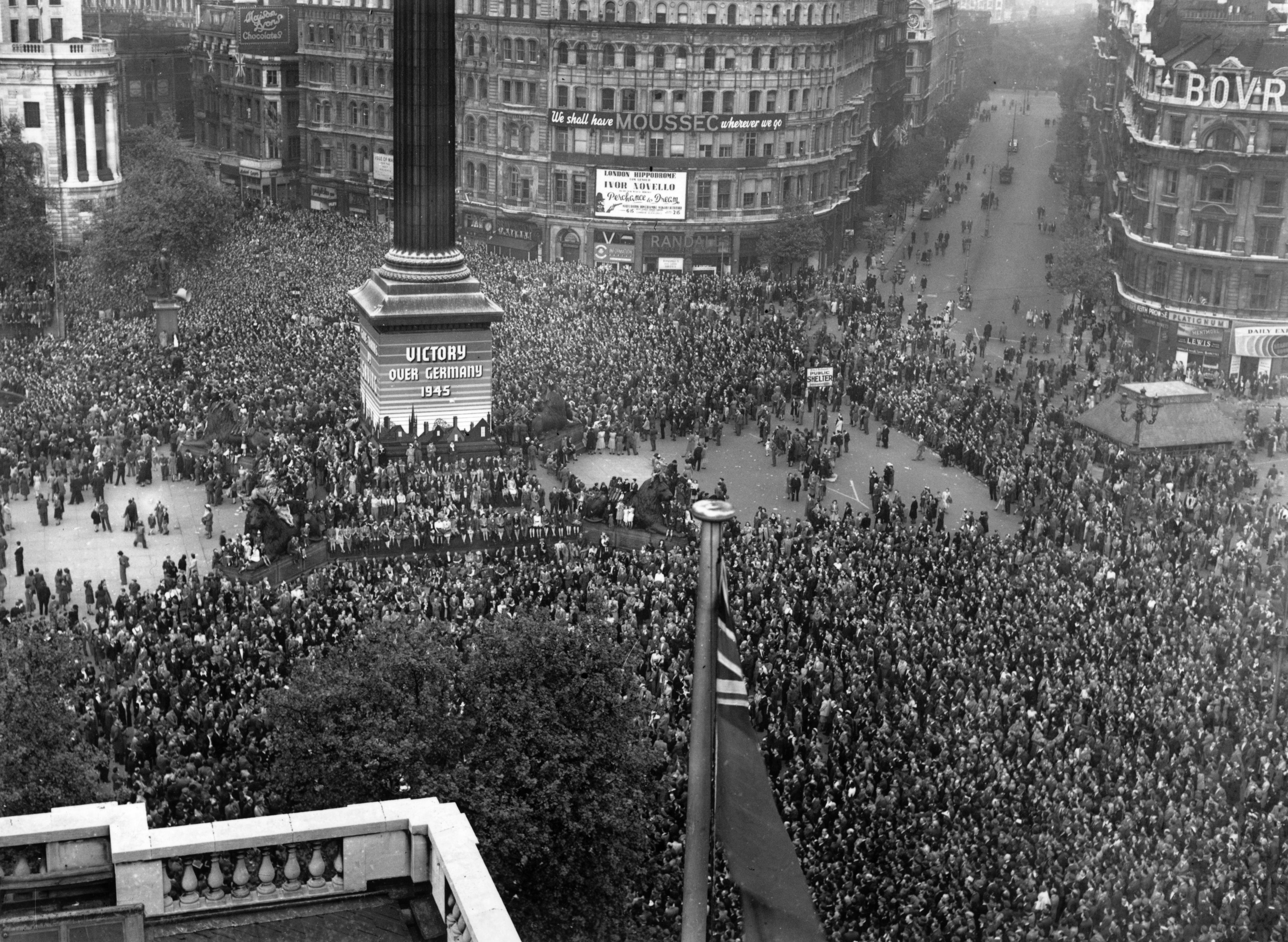
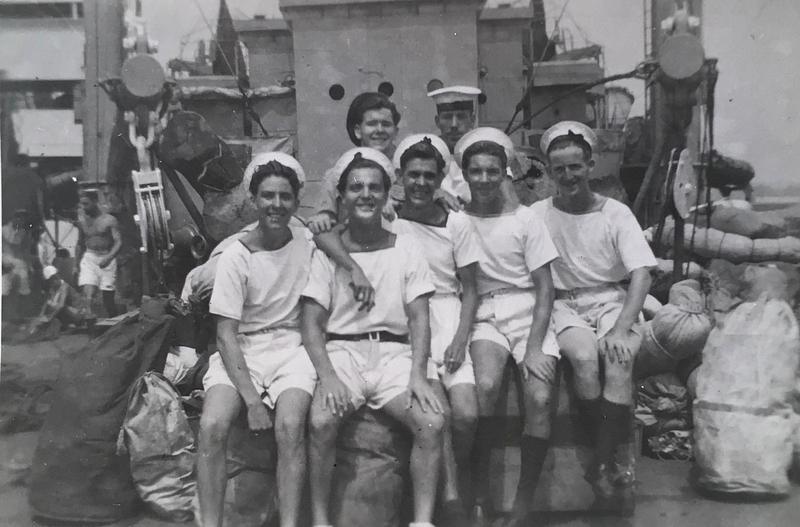
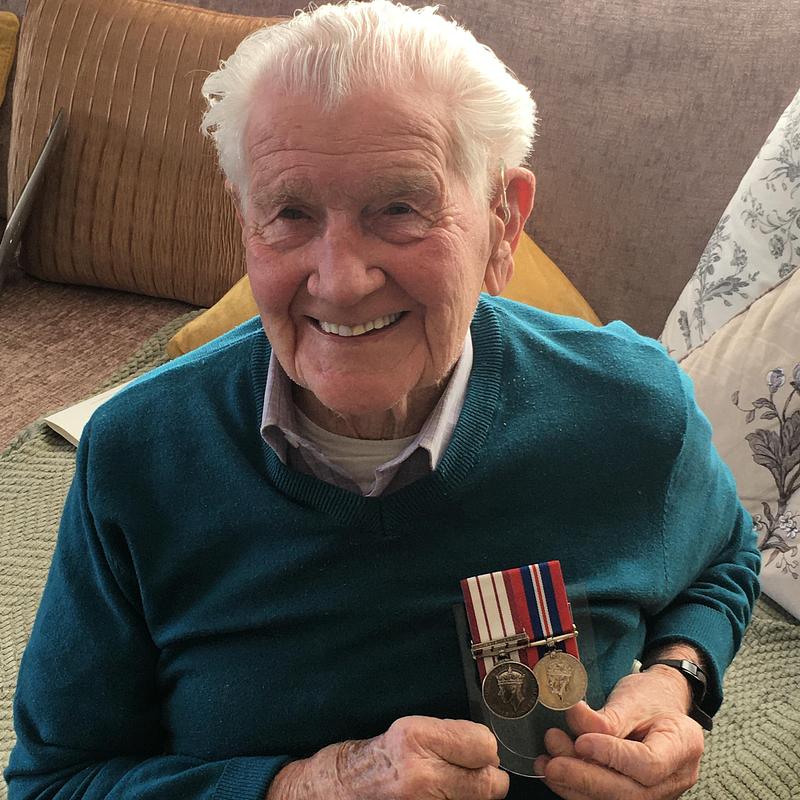
.jpg)

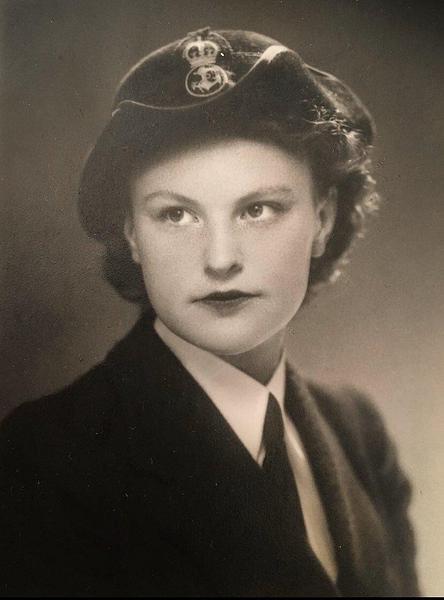
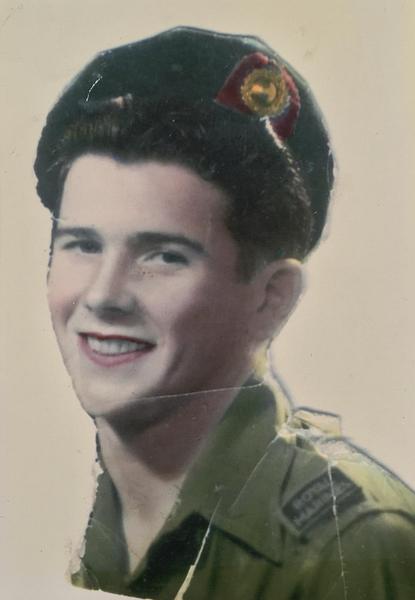
.jpg)